Are you planning on visiting the ‘Land of Smiles’? Take a look at these ten customs in Thailand to be aware of before your trip.
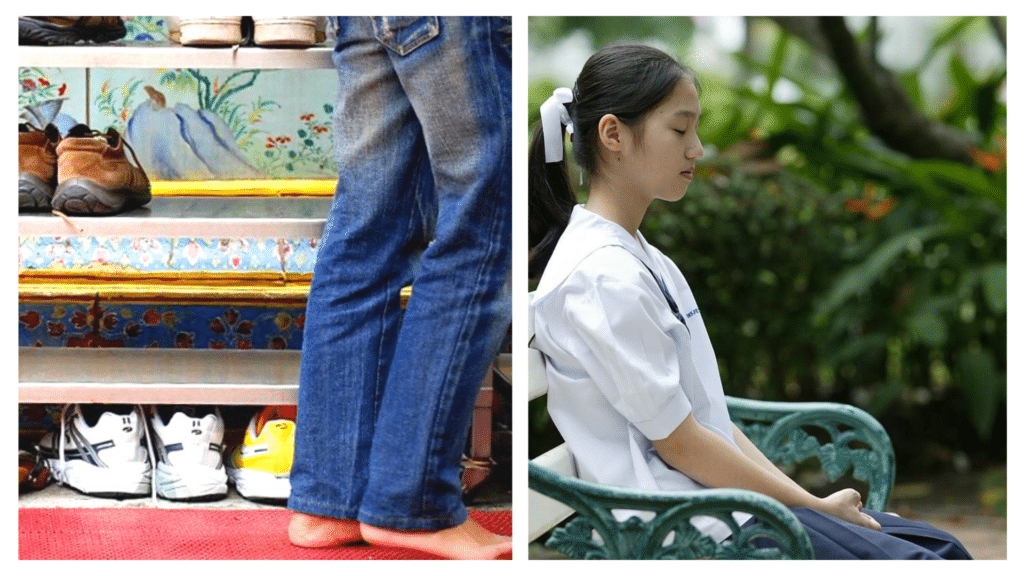
Thailand is a stunning Southeast Asian country filled with a diverse culture, beautiful islands, and some of the friendliest people you’ll ever meet.
Like any country, Thailand has its own customs and general rules of thumb that are considered polite and respectful.
It’s always good to be aware of these before you go somewhere so you don’t find yourself in any awkward situations.
As such, let’s take a look at some of the most important customs in Thailand to keep you right for your trip.
10. Bowing – one of the most important Thai customs
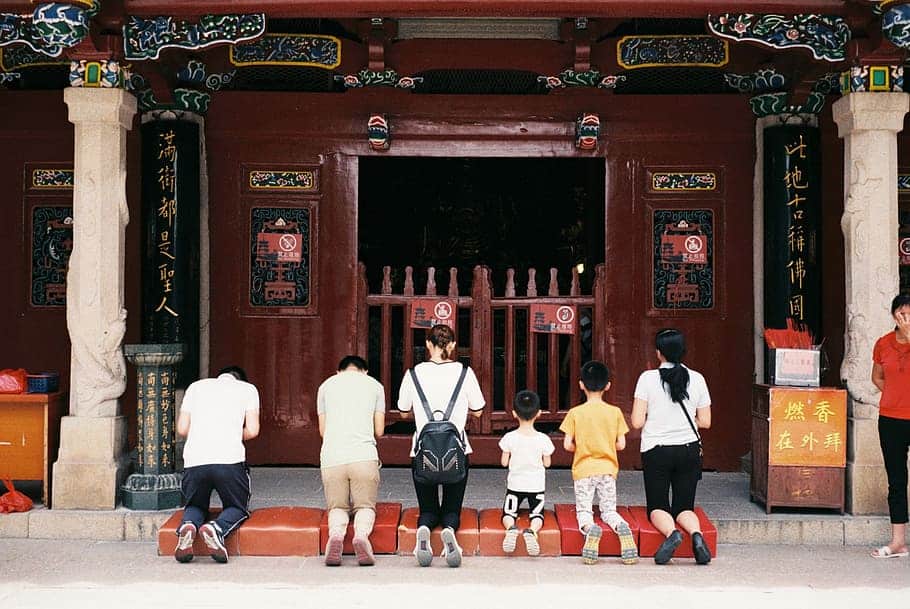
One of the key customs in Thailand is bowing. Bowing acts as a form of greeting, a sign of departure, and a generally huge sign of respect in Thailand.
How deep you bow depends on who you are greeting. Generally, when greeting someone who is older than you, the deeper you bow. As such, older people won’t generally bow to younger people. Bowing in Thailand is called the ‘wai’.
9. The King – held in high regard
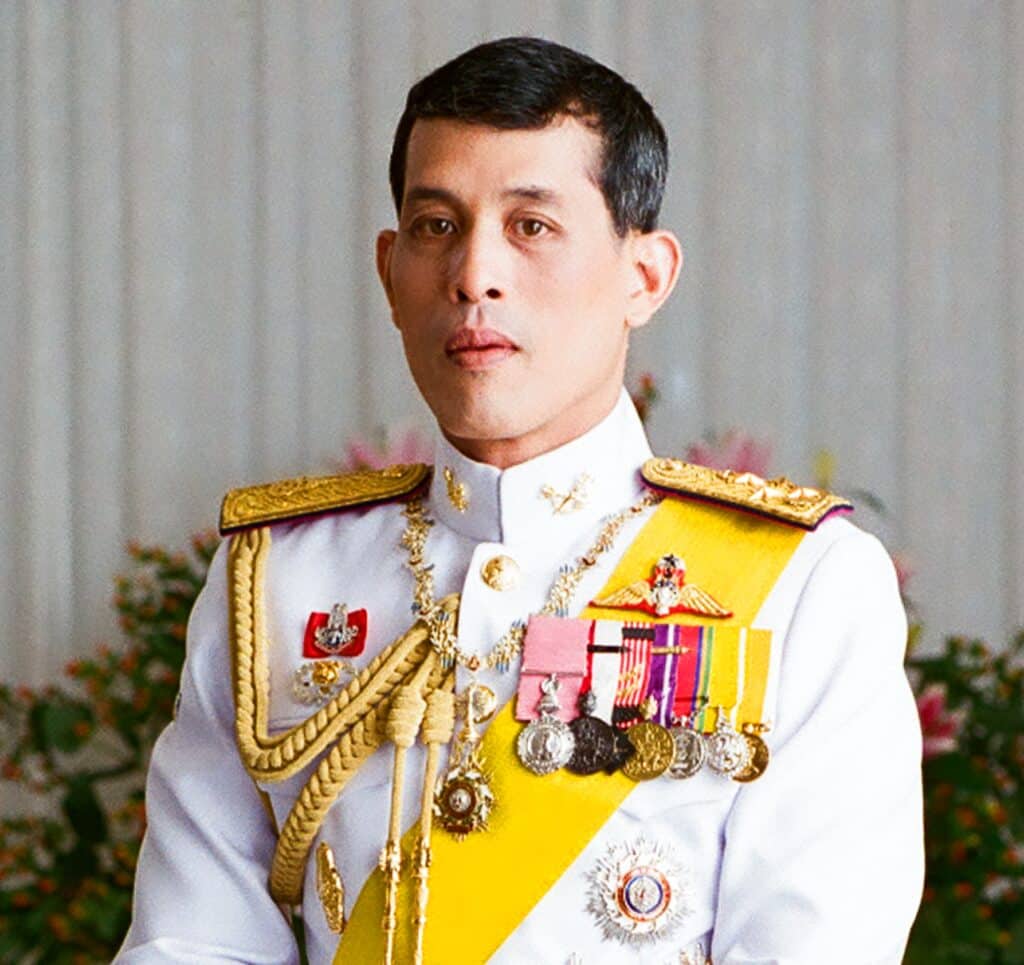
The royal family is held in very high regard in Thailand. Speaking ill of the King or anyone within the royal family is actually illegal. As a foreigner visiting Thailand, it is best to avoid the topic altogether.
8. Feet – the base part of the body

As the base part of the body, the feet are considered the least respected part of your body. As such, avoid pointing your feet at people.
If you are crossing your legs on public transport, be aware that your feet might be pointing at someone.
This is why you will find many Thai people prefer to sit cross-legged. While this is somewhat of an outdated custom, it’s still a sign of respect to follow.
7. The head – the most respected part of the body
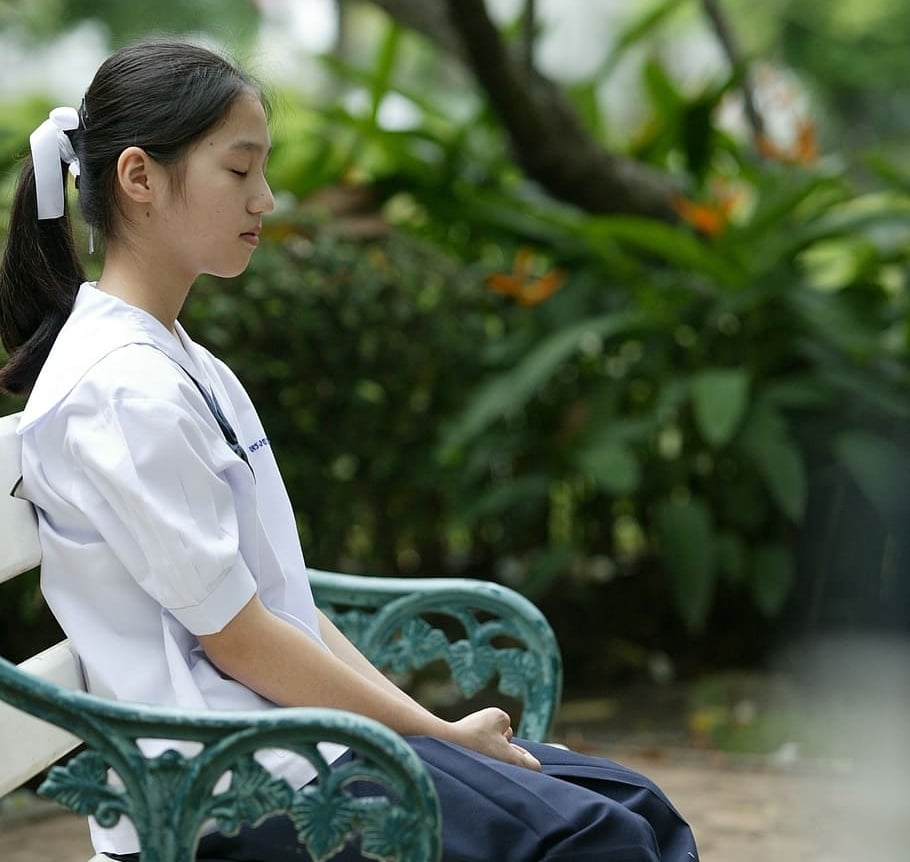
While the feet are the base of the body, the head is the highest and most important part. As such, don’t touch a Thai person’s head, as it is a sign of disrespect.
6. Standing for the King’s song in the cinema – one of the customs in Thailand you wouldn’t know unless you experience it
One thing you would never really know unless you experience it is that before any movie is played in the cinema, the King’s song will be played.
It is customary in Thailand to stand as a show of respect while the song is playing.
5. Tipping – not expected, but always grateful
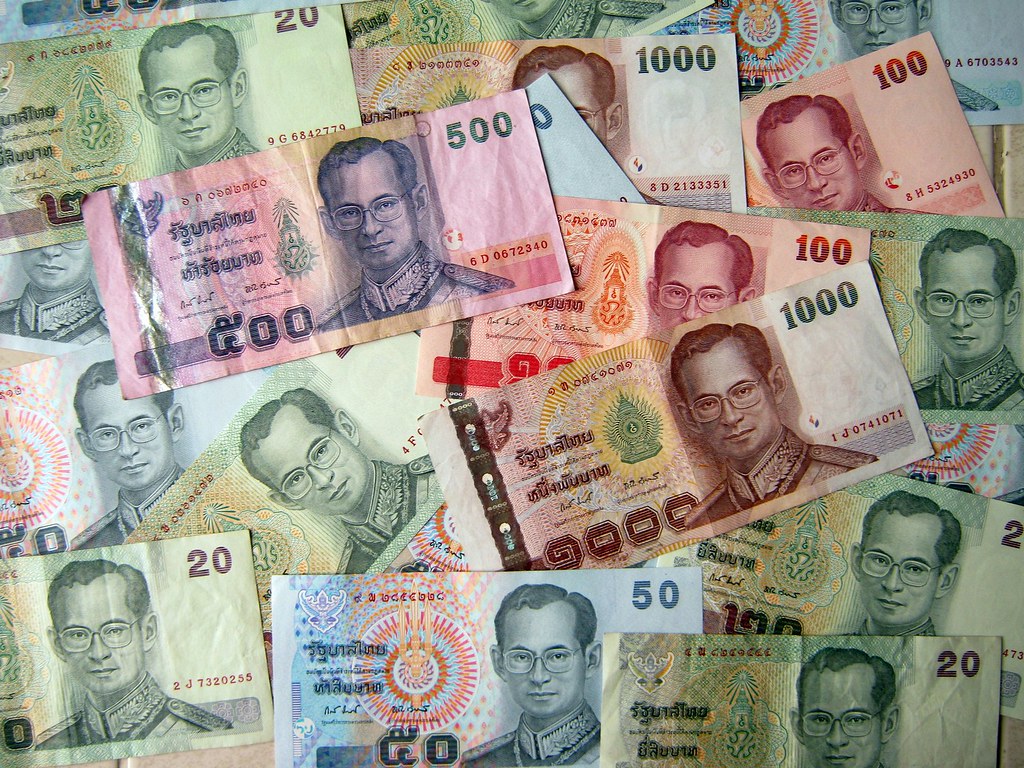
Tipping is not customary in Thailand. However, while it is offensive in other countries, it is not considered offensive in Thailand. Leave a tip if you had a great experience with your food, server, driver, or whoever it may be.
4. Bartering – pay a fair price
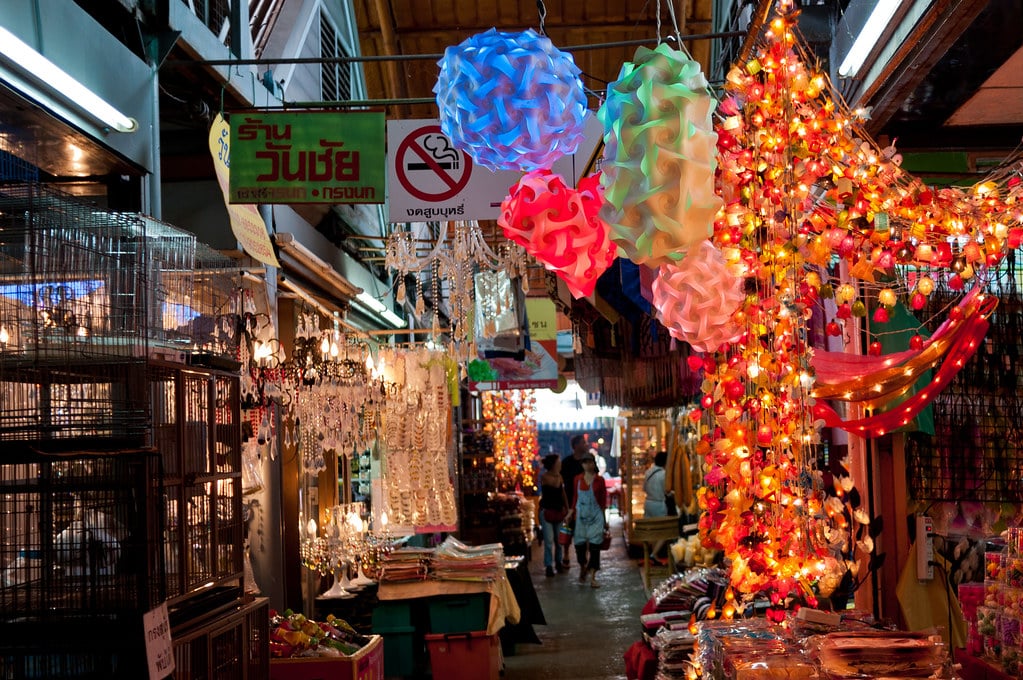
When you’re in Thailand, you will almost certainly pay the “tourist price” when visiting certain areas, especially those with an abundance of tourists and markets.
If you feel like you are being ripped off, don’t be afraid to barter. However, be aware that people in markets and small businesses in Thailand are working long hours for a small reward, so always be prepared to pay a fair price.
3. Covering skin – a show of respect
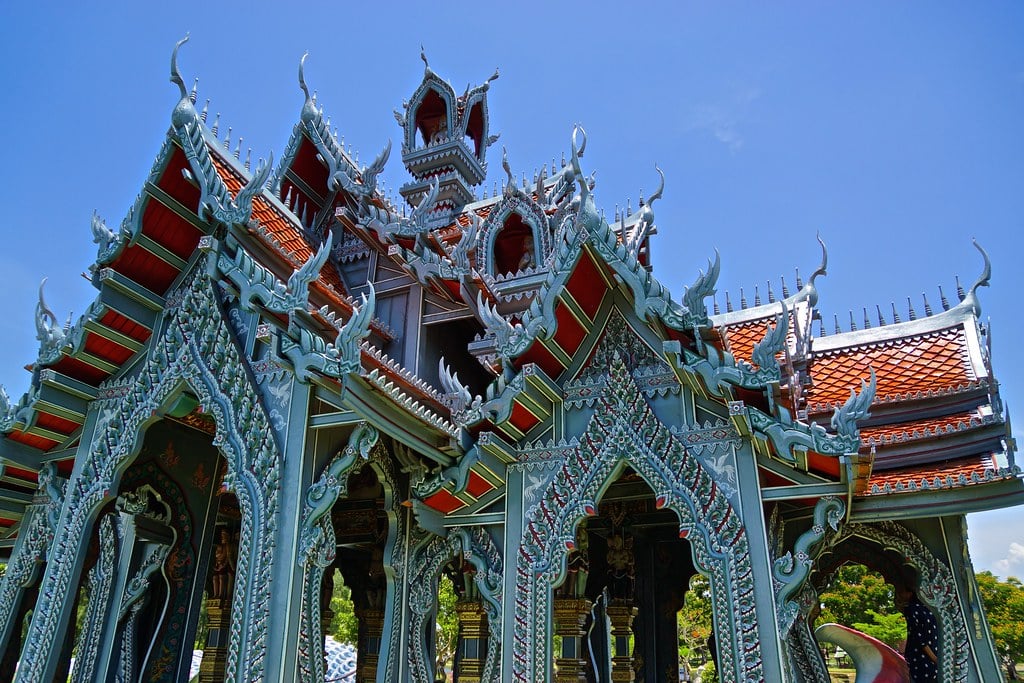
Thailand is quite a modest country, especially in the more rural areas. This is something to be aware of when you leave the big, touristy areas for the suburbs.
This is especially something to be aware of when visiting temples. Buddhist temples require you to cover your legs and shoulders. So be sure to dress accordingly, or you won’t be allowed entry.
2. Take your shoes off – it’s good practice
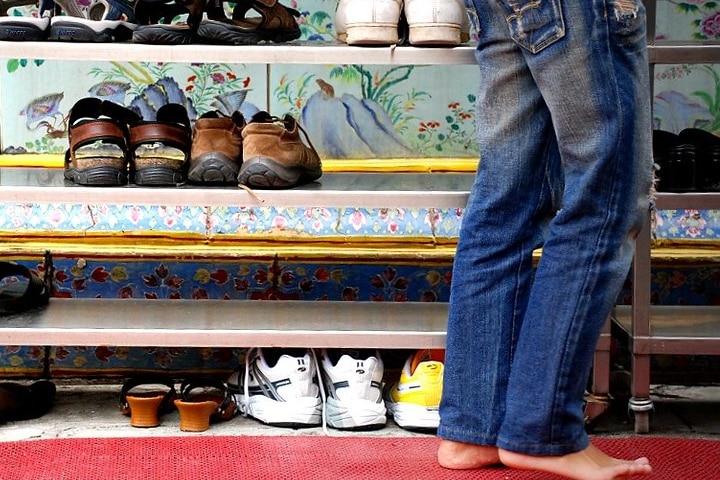
If entering someone’s house, a business, or a temple, always remove your shoes. This goes back to the feet being the base part of the body, the further part away from the head. It is one of the customs in Thailand to learn sooner rather than later.
1. Don’t point – a rule of thumb

This is generally one that tourists will be forgiven for, but it’s good practice to know not to point at people in Thailand, as it is considered rude.
Your Thai friends and colleagues will forgive you for it, but instead of pointing, you’ll notice Thai people extending a hand flat with the palm facing down to gesture to someone instead of pointing.
Other notable mentions
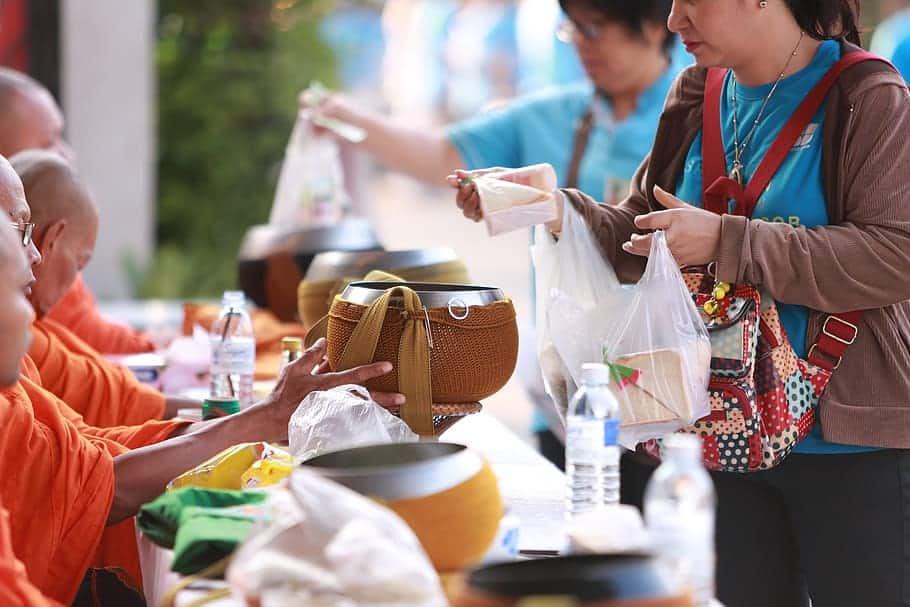
Ducking down: Another Thai custom that is considered polite is ducking down when you have to walk between two people. It shows that you are aware of your interruption and is a demonstration of respect when walking through.
Lots of people under one roof: It’s not uncommon in Thailand for extended families to all live together in one household
Anger and aggression: Thai people are very gentle people, so they don’t generally respond well to aggression or anger. Always be as respectful as possible.
Names: A lot of Thai people will adopt an English name or a shortened version of their name that most people will call them. For foreign visitors, you could be called by Miss, Mrs, or Mr, followed by your first name.
Thai time: Thai people aren’t generally sticklers for being on time. You will often hear ‘Thai time’ when someone is late.
FAQs about customs in Thailand
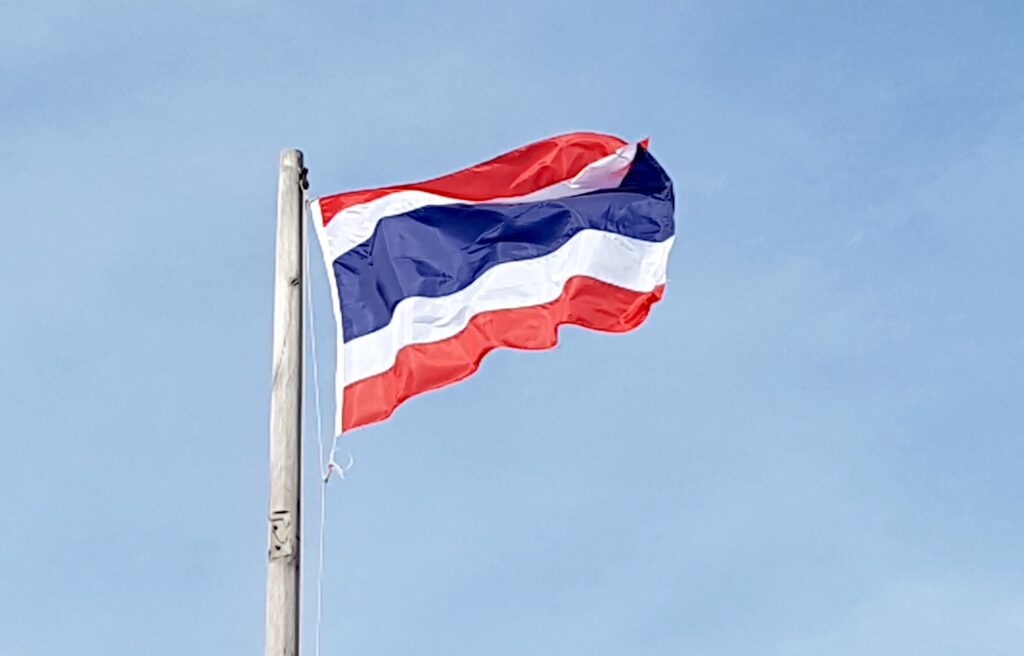
Are there strict rules in Thailand?
Thailand has some very strict rules. Read our article on things not to do in Thailand to avoid getting in any trouble.
Can I meet monks in Thailand?
It’s not the norm to approach monks in Thailand. You will find allotted times in certain temples where you can have a conversation with a monk.
However, monks are not permitted any contact with women in Thailand. In this case, you’ll find their words being dictated to you by someone else.
What are wats?
Wats in Thailand are Buddhist temples. They are Thai people’s places of worship and follow a strict dress code. Wats are beautiful and fascinating. Just always be respectful when visiting.
So, whether you plan to spend extended time in Thailand or are just passing through while backpacking in Asia, we hope you’ll bear in mind these Thai customs.

